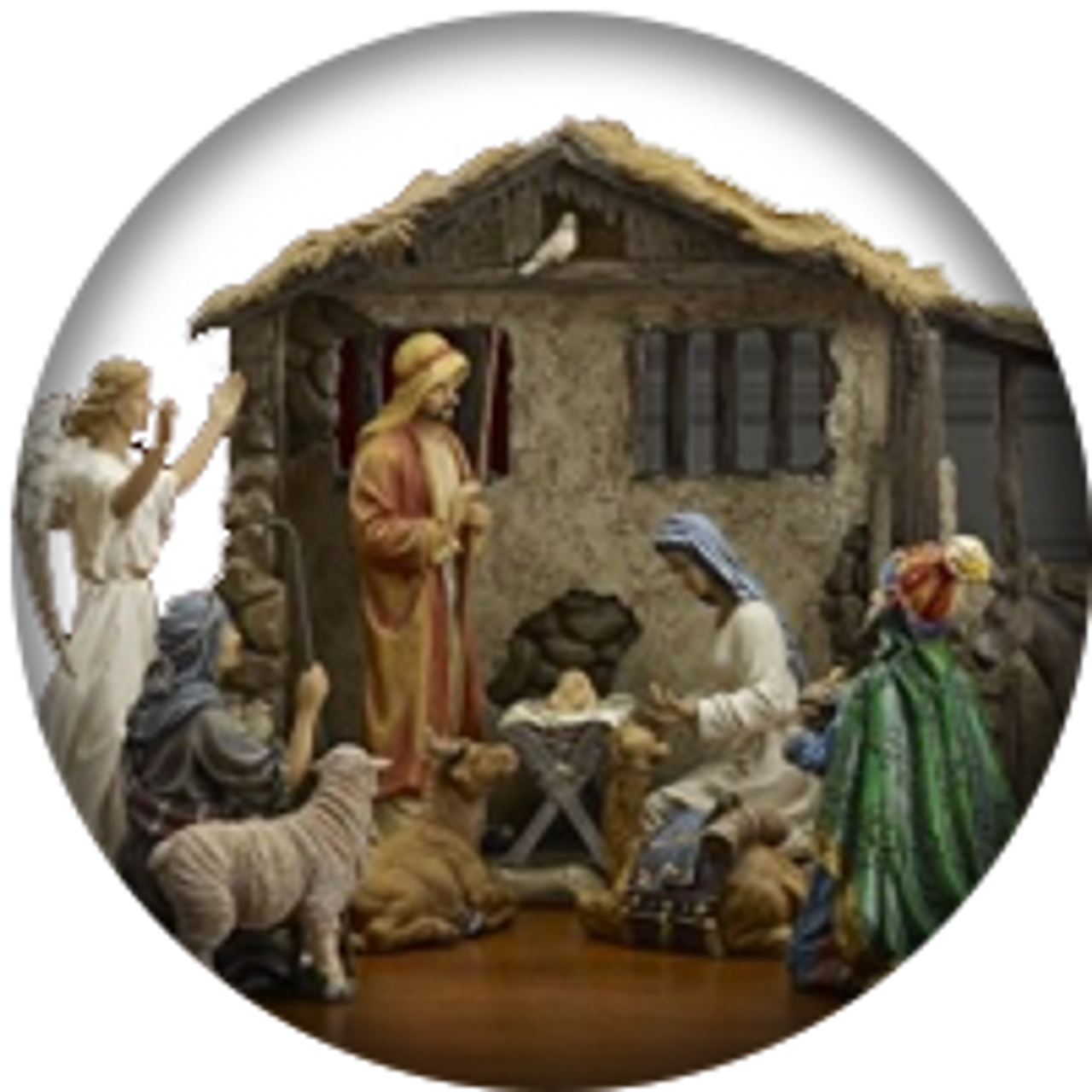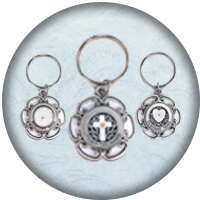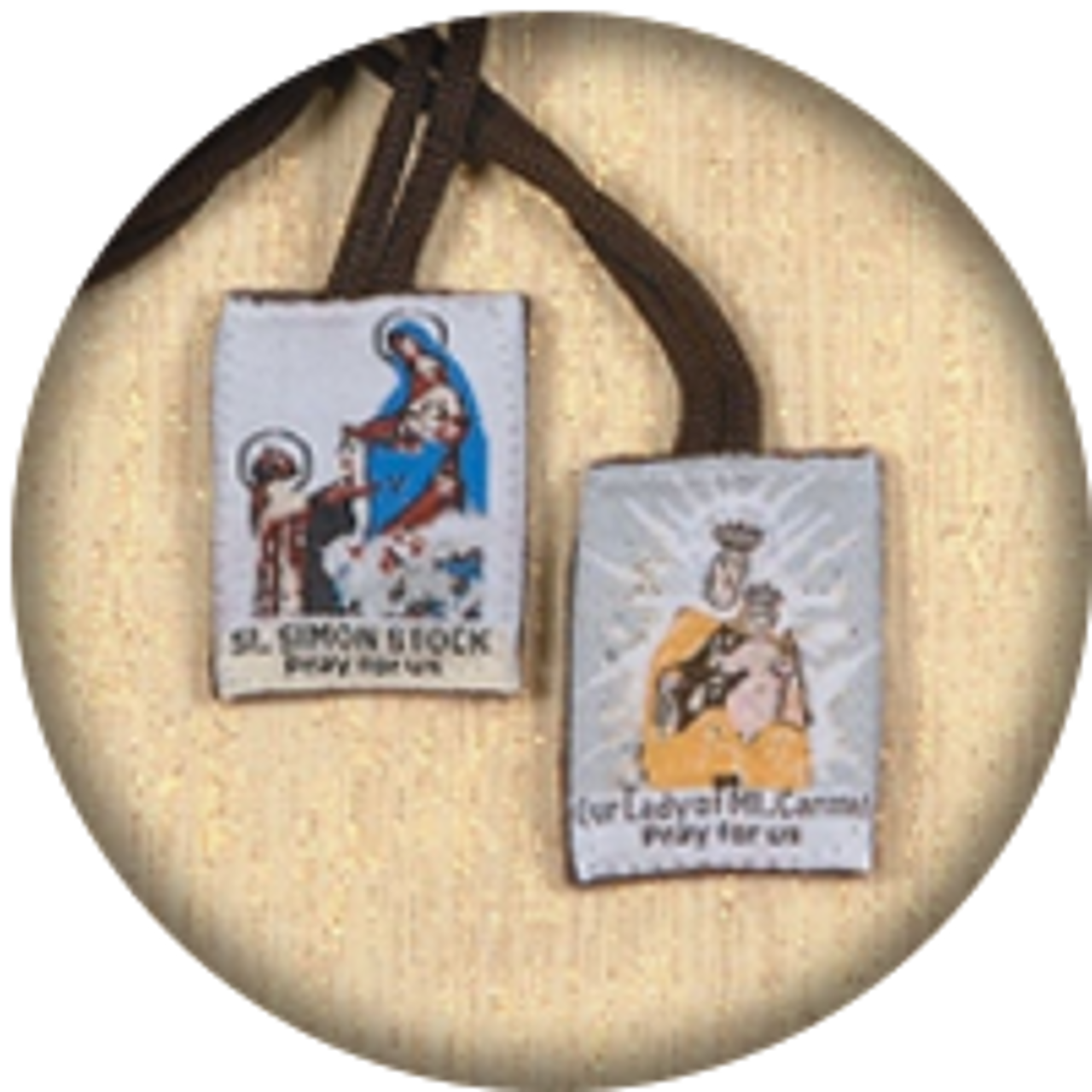PASCHAL MYSTERY, JOY AND DIVINE MERCY, PART II: PASSIONATE DEATH leads to JOYOUS RESURRECTION
Kathy Boh on 24th Mar 2016
PASCHAL MYSTERY, JOY AND DIVINE MERCY
PART II: PASSIONATE DEATH
leads to JOYOUS RESURRECTION
THE CROSS OF CHRIST… THE “JOY” OF IT?
Let’s begin by quoting from a homily of Pope Francis given in St. Peter’s Square in 2013:
"‘Jesus enters Jerusalem in order to die on the Cross. And it is precisely here that his kingship shines forth in godly fashion: his royal throne is the wood of the Cross! Why the Cross?
Because Jesus takes upon himself the evil, the filth, the sin of the world, including the sin of all of us, and he cleanses it, he cleanses it with his blood, with the mercy and the love of God. Let us look around: how many wounds are inflicted upon humanity by evil! Jesus on the Cross feels the whole weight of the evil, and with the force of God’s love he conquers it, he defeats it with his resurrection.
This is the good that Jesus does for us on the throne of the Cross. Christ’s Cross embraced with love never leads to sadness, but to joy, to the joy of having been saved and of doing a little of what he did on the day of his death.’” *
JOY AT THE THOUGHT OF BLOOD-BOUGHT BLESSINGS
“For the sake of the joy that was set before Him, He endured the cross.”
This scripture—a simple little statement—says so, so much concerning Jesus in regard to his own perspective regarding the worst time in His earthly life: “For the sake…” [Hebr. 12:2]. I believe that literal volumes could be written on that one verse—and all the foundations of truth that lie behind it.
This reminds me of the opening statement in the book, Tale of Two Cities: “It was the best of times, and the worst of times…” Ours is a tale of two kingdoms…
Quite different things were going on surrounding one horrifying reality...The kingdom of this world has not seen a match for the tribulation that Jesus went through. But the kingdom of heaven could not rejoice more over the results of His life freely given.
If we go by sight and not by faith, we, too, could make the mistaken judgment of “supposed” victory of the world and the devil over Jesus Christ in His passion and death. But the enemy's earthly victory was both deceptive and temporary… as faith gives us sight to see…though the suffering and pain endured was quite tangibly felt, nonetheless...
The joy that was the motivator to endure the cross was connected, basically, to us… and concerned us. Jesus knew Himself as the Savior… the Way… the Truth… the Life… the gate (the sheep gate)… the door that would open everlasting life and countless blessings to “whomsoever” would believe and “enter through the narrow gate”.
JOY—BEFORE, DURING OR AFTER?
We are not exactly sure at what point in time He had that deep, decisive joy… whether it was throughout much of His life, and before his physical agony (but still during much spiritual, mental, and emotional anguish—during the extended time period of knowing what lay ahead), and still “set[ting] his face like flint” [Isa. 50:5-7]… Or was it actually during the time covering the Last Supper, His Passion and His death…
Or was it all of the above mentioned times?Joy can be manifested in more quiet, peaceful ways… grateful, focused, steady and secure. One way or another, Jesus chose to look ahead to joy while foregoing “present” happiness. [What an understatement!] Earthly, felt happiness was the absolute, definitive polar opposite of His Passion and death.
Isaiah 53 sheds some light. Throughout this chapter, Isaiah foretells the suffering of Jesus Christ with amazing description and detailed accuracy. He also sheds light on His motivation, and God's plan. "...But it was the Lord's will to crush him with pain, by making his life as a reparation offering...their iniquity he shall bear...the Lord's will shall be accomplished through him... "
The joy that lay ahead? "He shall see his offspring, shall lengthen his days..." We are his "offspring", whom he sees and delights in... and his days (physically) were lengthened in resurrection life. How did his knowledge of what lay ahead impact him? "Because of his knowledge, he shall be content" [have that quiet joy within].. "My servant, the just one, shall justify many...Therefore, I will give his portion among the many" [His new life; His righteous justification; His victory over sin and death; His everlasting life... to share with new brothers and sisters, sons and daughters of God the Father, etc.], "and he shall divide spoil with the mighty..."
"...Because he surrendered himself to death, and was counted among the transgressors, bore the sins of many, and interceded for the transgressors." [Isa. 53:10-12]
FOCUS MAKES A DIFFERENCE
Before we go any further, we need to take a look a look at “joy” and some related words. And we can even look at “joy” in the midst of the non-joyous (even tough and painful) circumstances. One might say that we could look at “gladness” on several levels—both deeper and more sustainable, and the more periodic and superficial. We have the quick laugh that hits and passes quickly, and we have the most unfathomable depths of true, abiding joy—even the joy that runs deep. And—like it or not—when life gets rough, challenging and/or heavy, it helps to have any kind of a lift! (I, for one, will take the entire extent of possibilities!)
We mentioned some of this in a previous blog last year, and presented the concept that focus makes a difference. God actually tells us so. Let’s look at Philippians.
Philippians 4:8 declares: “Whatever is true, whatever is honorable, whatever is just, whatever is pure, whatever is lovely, whatever is gracious, if there is any” [yes, any at all…even a smidgen] “excellence, and if there is anything” [yes, anything at all] “worthy of praise, think on” [focus on] “these things”. [Phil. 4:8]
Our focus really does make a difference. I believe there is great wisdom in this statement: “if there is anything worthy of praise, think about these things…” Where we look and what we choose to dwell upon does make a difference in our perspective; our mood; our motivation; our attitude; and our plan of action (or inaction, if “waiting” and “resting in the Lord” is appropriate). A quick test of this is to simply take a few moments… and focus on the polar opposites of those things listed to think about… See what results…
In Philippians, we are asked to “Rejoice!” … “Rejoice in the Lord always.” [Phil. 4:4] Even when we can find little to feel happy about at any given time, we can find reason to rejoice in Him because of the steadfastness of Who He is. "Who He is" never changes. He is always “good”--good that is both known and unknown, revealed and unrevealed, imagined and unimaginable, experienced or not.
Joy can even go into humble faith realms as we acknowledge ALL the unknown, unrevealed, unexperienced and unimaginable goodness, love, etc. of God...
In verses 6 and 7, God encourages us to cover our anxieties and requests—and everything else—with prayer, petition, and thanksgiving. Then, when we do that, we can discover God’s very own gift of “peace… that surpasses all understanding” [In other words, we can’t comprehend how we could have peace amid ‘this particular’ situation or experience, but, amazingly, we find it… He gives it to us.] It’s a comfort to know that He wants to give it: peace… tranquility/ harmony/ security/ mutual accord amongst His children on earth… and… especially a calm, anxiety-free ability to relate to God, Himself.
Internal peace—deriving from a trust in God and His steady, unwavering care— I believe, is one of the foundations to sustained joy. The fruit of “joy” goes beyond surface emotions (which are fleeting) and often has something to do with some other sustained attitudes, choices and perspectives. It includes the capacity to be grateful, give love, and appreciate goodness and beauty when, by “feeling” or “appearances” alone, what’s good or lovely would seem to be—at certain times—in short supply.
I believe part of what sustained joy encompasses is an openness to good things (“above” or around us)—even when we are not actually feeling “good”… (That gets us back to focusing on even the “smidgens”…) Joy has something to do with the capacity to en-joy… Again, to appreciate things, whether they be tangible or intangible, things or people, concepts or colors, God’s beauty in nature or some human creative endeavor… The list goes on...
WHAT ABOUT JESUS?
We presented the concept of “focus”. What about Jesus? How did He allow Himself to remove His attention from the pain screaming from every nerve in His body, so that He could “focus”on the (“true …honorable… just… pure… lovely… gracious… excellent… worthy of praise”) “joy” that “was set before Him”? What could cause such joy in the midst of (or at the anticipation of) the all-time epitome of the opposite of “happy experiences”? Was it that he could imagine those who would come to—and through—Him to salvation and eternal life… knowing far more than we do exactly what that meant to have or to miss, forever?
There are several things that Jesus could have thought… He could have known—as a joyous thought. One would be: that because He was willing to endure the horrors of suffering that should have been ours—He could not only spare us (paying a price we could not possibly pay as sinners), but He could do what only He could do... and was sent to do. He knew that only He could be the sacrifice-price—as perfect holiness Personified… Son of God. He could then (prefer to) think of all the benefits to and for us with joy, rather than focus on (although not ignoring) the sure knowledge of the excruciating ordeal that He would, and did, endure.
The immense motivation that He found could only be explained by a love that is astronomical, unspeakable, and far beyond our ability to comprehend. Because of His totally selfless love for us He was able to focus on the fact (by faith!!... as a human being subject to fear/doubt/failure/ temptations, etc.) of some soon-coming-future realities. And, by faith, He considered them as “real” and good and true, though as yet, unseen. He knew that after His brutal torture and death, there would be so much (and so many) to rejoice over: our cleansing from sin and resultant new life; the availability of forgiveness, grace, power from on high, healing, deliverance—and every blood-bought blessing that anyone would ever receive… for millions of lifetimes, and for the duration of eternity itself.
This God of love—Who IS “Love”—allowed His love to carry Him… to be the reason, the driving force, and the primary influence (amid all the torturous fleshly reasons to quit or count us “not worth the price”) to endure the unendurable. What level of love (at the thought of, or the immediate experience of, such agonizing suffering) must someone have/ possess/ abide in… to even consider “joy” as an option amid such potential or very present and cruel torment?
SELF-SACRIFICING LOVE VS. HAPPINESS
That very real love—so broad, so deep, so enduring (quite literally, self-sacrificing)—helps produce a level of joy as a mind-set and a heart-set that goes far below the surface circumstances of life. This kind of joy is almost the polar opposite of circumstantial “happiness”. Its source of gladness runs deeper than momentary pleasure or satisfaction or fun. What happens when those more pleasant things are not so available? For some, those things are their purpose for living. But what happens when we find them in short supply, for some reason… an absence of “happy” circumstances—for longer than we had hoped, or even for a brief period of time? How do we cope? What helps us to function??
Certainly we can all agree that “foregoing present happiness” for our sake is what Jesus clearly chose. How did Jesus—as man dependent on His Father’s care and guidance, and on the Holy Spirit’s presence—find that joy, in the midst of circumstances that totally ruled out “happiness”? “For the sake of the joy that lay ahead…”
Yes, angels ministered at the Garden of Gethsemane. He had the presence of the Holy Spirit (Who had been manifested at His baptism in the River Jordan). It is clear, however, that He lost the emotional feeling of connection with the Father as He cried out, “My God, My God—Why have You forsaken Me?” Circumstantially, dramatically and demonstratively, Jesus felt abandoned—deserted—by the Father God Who was the only One on Whom He could depend… yet He chose to still trust and obey that very same Father (through physical, mental and emotional horrors) while there were no signs of His presence, and no “feelings” of the comfort or encouragement of the Holy Spirit. This Jesus, Who was and IS God, did not cease to be God (or man!) as He suffered so much.
The word of God is true when it says that Jesus was tempted in every way (known to man) but did not sin. “For we do not have a high priest who is unable to sympathize with our weaknesses, but one who has similarly been tested in every way, yet without sin.” [Hebr. 4:15]
By being God, He did not cease to remain fully human. It is impossible to know the extent—far beyond even just the physical, physiological torments that Jesus went through—of mental and emotional suffering,temptations and all manner of demonic attacks against his mind, his emotions, his spirit as He felt the shame and pain with every nerve cell in excruciating agony… And as He bore the sins of thousands of years of human transgressions and hate.
No one was put outside of His circle of loving kindness and willing friendship. Thus, “No one has greater love than this, than to lay down one’s life for one’s friends.” [Jn.15:14] As with everything else in our relationship with God, the gestures of friendship and interest, care and attention, fidelity and steadfast love is the burden that HE readily and unwaveringly carries (as in “easy yoke, light burden” on us). He is the God Who continues to fulfill His covenant, and His covenant love, even when we fail, turn away, or put anything (and sometimes everything) ahead of, and in place of, Him.
LOVE PAID THE PRICE
It has been explained (by many through Christian history) that the justice of the Father could not be in the very presence of sin… specifically, the [large load of] sin that Jesus carried. Holiness and sin could not co-exist. Yet, in a very real sense, they did… in the Being of the One Who became “in the likeness of sinful flesh” that we might receive His righteousness…His “right standing” with the Father. “For what the law, weakened by the flesh, was powerless to do, this God has done: by sending his own Son in the likeness of sinful flesh and for the sake of sin, he condemned sin in the flesh…” [Rom. 8:3]
LOVE IS WHY HE CAME—THE WAY. THE GATE. THE DOOR…
This One—God, Himself—sent to earth to save and deliver (after we had rejected every other one—the prophets—that God sent to bring truth or light)—made His grand entrance into our fallen presence by being born in a stable (crowded, smelly, unclean). Being the all-knowing and ever-wise God, with myriads of choices in time and place to make His presence known on earth, it was no accident on His part to come into such unpleasant circumstances (cold; his birth unattended by loving relatives or familiar faces; noisy; lacking privacy, etc.).
I believe that part of the purpose for those choices was to “announce”, so to speak, to our secular and religious worlds (and all our secular and religious systems) that this God of Love was and is willing to come into our messes… into our “uncomfortable” places in life. He is willing to endure and deliver/ redeem/ restore our broken ways. It’s why He came. Love is why He came.
Jesus truly became the “gate”… the “door”… the “Way” between two unmixable entities. An open portal was made—by the perfectly holy and righteous One, Who “became sin” for our sake, without actually sinning, or doing anything but loving! And a “flood” was released through a portal torn (as surely as His own Body was ripped and torn), allowing heavenly graces and power, healing and restoration to be unleashed into every fallen and broken person and place on earth that would choose to receive Him and all that He offers us.
Let us not let Easter Sunday come without seeking to receive all the graces and healing and restoration that Jesus paid such a high price to purchase for each of us. Let us let HIM become a new gate, a new door, a new way for us this Easter season.
The series continues. The next blog will be PART III: LIVING HIS
VICTORY; “TO LIVE IS CHRIST, TO DIE IS GAIN”
… Dying and rising with Christ…
FOOTNOTE:
*WHO IS THE DEVIL? WHAT POPE FRANCIS SAYS by Rev Nick Donnelly, p. 8-9










